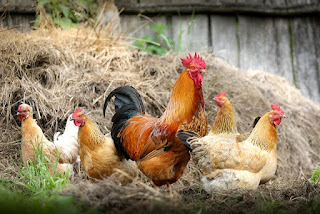
What is Confined Livestock Production?
Confined livestock production refers to a farming system where animals are kept in limited spaces, usually indoors or in small outdoor enclosures, rather than grazing freely on open pasture. This method is commonly used to maximize productivity and manage resources more efficiently. But how does it work, and what are the implications?
In confined livestock systems, animals like cows, pigs, and chickens are housed in controlled environments. These setups can vary from simple pens to more complex facilities with automated feeding and climate control systems. The main goals are to increase production rates, reduce land use, and provide more direct management of the animals' health and diet.
Key Concepts:
- Housing Systems: Animals are kept in barns, feedlots, or cages, where they are provided with food and water on a scheduled basis. This setup can lead to higher growth rates and more efficient feed conversion.
- Waste Management: In confined systems, waste is collected and often managed through systems that recycle it into compost or biogas, reducing environmental impact.
- Health Monitoring: With animals in close quarters, disease can spread quickly. Therefore, regular health checks and vaccinations are essential to prevent outbreaks.
Case Studies:
1. Poultry Industry: In many commercial poultry farms, chickens are raised in large, controlled environments. These systems allow farmers to produce a large quantity of meat and eggs efficiently. The controlled environment also helps reduce the risk of diseases like avian flu.
2. Dairy Production: Confined systems for dairy cows can optimize milk production. For example, automated milking systems and climate-controlled barns help ensure cows are comfortable and productive year-round.
Impact on Self-Sustainable Cities:
In our self-sustainable city project, confined livestock production can play a crucial role in achieving food security while minimizing land use. By integrating these systems, we can produce high-quality animal products within a smaller footprint, which aligns with our goals of efficient resource use and environmental stewardship. Additionally, the waste management techniques used in confined systems can be adapted to support our sustainability initiatives, turning waste into valuable resources like compost for our orchards.
We'd love to hear your thoughts on confined livestock production! Do you think it aligns with sustainability goals, or are there challenges you see? Share your questions or comments below!
![Self-Sustainable City - Ramakrishna Surathu [Official Website]](https://blogger.googleusercontent.com/img/a/AVvXsEivh2bAyNCG-DxYf4p_lHLcFQx1i8MvbBv91UgzKqAFrNMhT8xW-fwxgNJTdtojgb9aYXiG9EdNYLo8tNmtaakyq-zmnaCeeUGMdpvJ8iOaVzd2tSKEC2UrUXzFJa952LPF-OngfPenpbFOj7b8AcbYtPGSng6xbGr-_NwEIRpXZg_QdKLGRMGeg5pWmtaQ=s1280)
No comments:
Post a Comment